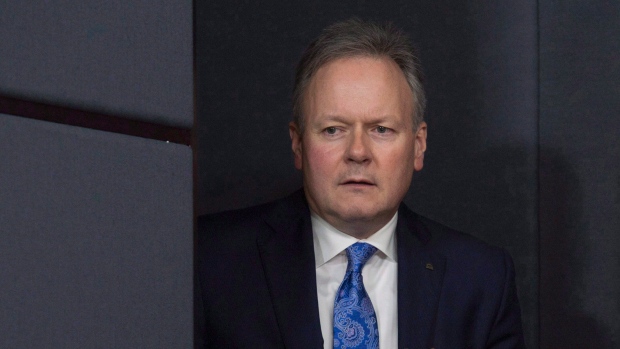Jan 31, 2017
Bank of Canada's economic forecasting can be improved, says Poloz
, Reuters

EDMONTON - The global financial crisis has left the Canadian economy with persistent excess capacity, Bank of Canada Governor Stephen Poloz said on Tuesday, adding that geopolitical risk and uncertainty make it harder to know if policy is on track.
In a speech focused on the strengths and weaknesses of the bank's economic modeling over the years, Poloz said policymakers are always mindful of the uncertainties that might cause Canada to undershoot or overshoot the bank's inflation target.
"While we project that inflation will be sustainably at target around the middle of next year, we are well aware that the lingering aftermath of the crisis has left the Canadian economy with persistent excess capacity, and inflation has been in the lower half of our target range for some time," Poloz said.
He also said it is "ill-advised" to reduce interest rate decisions to a mechanical action, given the uncertainty in economic models.
In his speech to the University of Alberta business school, Poloz said that while the idea of a zone generated by uncertainty can create some tolerance for small shocks, a large shock or series of smaller ones can tilt the balance of risks, prompting policy action.
Canada's central bank cut rates twice in 2015 to stimulate the economy in the wake of falling crude oil prices, but has since left rates unchanged amid tepid growth. The bank is not expected to raise rates until 2018, even though the U.S. Federal Reserve has begun to tighten policy.
Poloz made clear the bank sees no need to follow the Fed.
"We're still quite some ways behind the U.S. economy, so a divergence of policy is exactly what we would expect to see," he said after the speech.
He reiterated that the firmer Canadian dollar is a headwind for the export sector, where growth has not been as strong as the bank anticipated.
A week after U.S. President Donald Trump signed orders to clear the way for the Keystone XL oil pipeline to be built, Poloz said in an interview with the Edmonton Journal that while the construction of new pipelines would help the economy, it was not a magic bullet.
"The big picture is we have to adjust to a lower price, possibly for a really long time … If the price gets up to $60, I can imagine lots of new supply coming on quite quickly," he told the paper.


